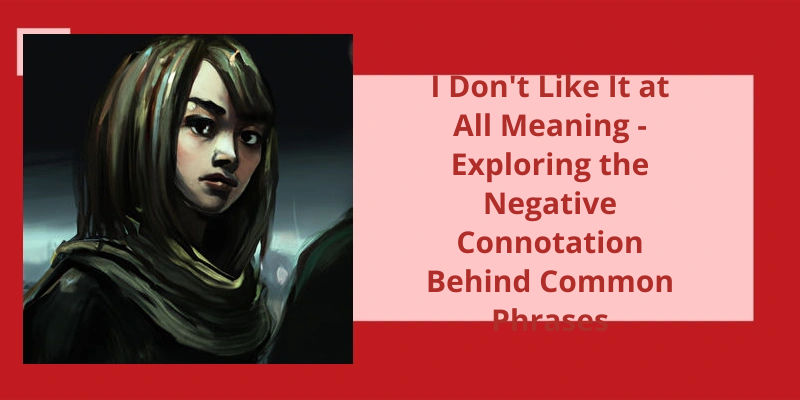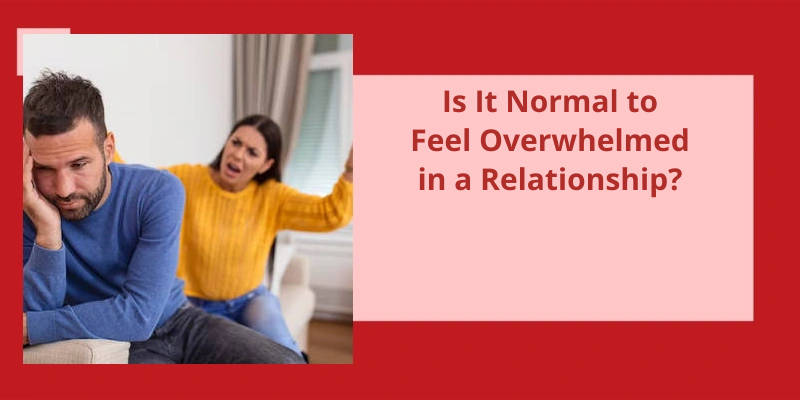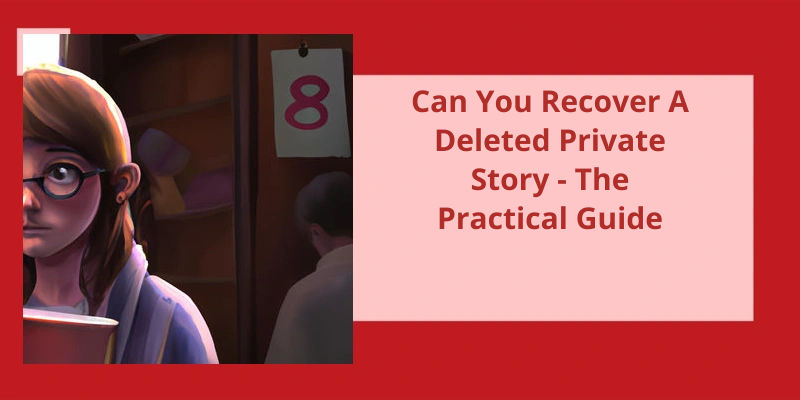The phrase “I don't like it at all” is a clear expression of intense aversion towards something or someone. It connotes an absolute rejection of whatever is being referred to, without any trace of fondness or appreciation. This statement leaves no room for confusion or misunderstanding as it unambiguously expresses the speaker's perspective towards a particular matter. Understanding the subtle differences in language usage is crucial to accurately imparting and interpreting meaning, and in this case, the distinction between "not liking" and "liking slightly" can be significant. Ultimately, the phrase “I don't like it at all” carries a powerful negative sentiment that can’t be misconstrued.
What Does I Don’t Like It So Much Mean?
When someone says “I don’t like it so much,” they’re essentially expressing their lack of enthusiasm or approval for something. This could refer to anything from a dish they tried at a restaurant, to a movie they just watched, to a new piece of technology they purchased. It’s a polite way of communicating that you don’t necessarily dislike the thing in question, but it’s not something that you really enjoy or would actively choose to engage with in the future.
In many cases, people might use this phrase to soften the blow of a negative statement, particularly if they’re talking to someone they don’t want to offend. For example, if a friend suggests a TV show that they think is amazing, but you don’t really enjoy it, you might say “I don’t like it so much” instead of “I think it’s terrible” to avoid causing hurt feelings. It’s a more diplomatic way of expressing a negative opinion, and can often lead to more productive conversations about why you feel the way you do.
Of course, there are some situations where saying “I don’t like it so much” might sound insincere or even passive-aggressive. For instance, if a boss asks for feedback on a presentation they just gave, responding with this phrase might come across as apathetic or unhelpful. In many cases, it’s important to read the room and choose your words carefully in order to avoid miscommunicating or causing unnecessary conflict.
While it may not always be the most effective or straightforward way of communicating, it can be a valuable tool in certain social situations where diplomacy and tact are preferred. By using this phrase thoughtfully and in appropriate contexts, you can help build stronger relationships and avoid causing unnecessary friction with others around you.
Non-Verbal Cues That Can Convey Disapproval or Discomfort
- Eye rolling
- Crossed arms
- Sighing
- Shaking head
- Frowning
- Avoiding eye contact
- Tense body language
- Slouching
- Grimacing
When it comes to expressing our dislikes, it’s important to do so politely and considerately. Whether it’s disliking a particular food or movie, there are various ways to articulate these feelings without offending anyone. Here are six ways to say you dislike something in English, without sounding rude or impolite.
How to Politely Say I Don’t Like It?
At times, we come across situations where we need to express our dislike towards something but find it hard to do it politely. Here are six common ways to say you dislike something in English.
One of the easiest and most straightforward ways to say you dislike something is by using straightforward language such as “I hate/loathe it.”. However, it can come off as quite harsh and rude, so it’s important to use the tone and context to convey your message in a less offensive way.
“I’m not a fan of it” is a more neutral way to indicate that you don’t like something. This phrase conveys that you’re indifferent to the thing and don’t have a strong liking for it.
If something annoys or bothers you exceptionally, you can say, “It drives me crazy.”. This phrase is somewhat intense, so use it carefully, especially when communicating with someone you don’t know well.
“It’s not my cup of tea” is a clever way to express dislike politely and casually. It means that you don’t enjoy something, but it doesn’t necessarily mean you hate it or find it offensive.
Lastly, “It’s not my thing” can be a viable option to express dislike without hurting someones feelings. This phrase, like the previous one, implies that the person doesn’t have a particular liking for something, but it’s relatively mild and doesn’t come off as rude.
Expressing a negative sentiment towards something can be a difficult task, especially if it’s something that upsets or challenges us. Rather than resorting to the overused phrase “I don’t like it,” consider incorporating some more nuanced language into your vocabulary. There are many alternative words and phrases you can use to convey your distaste in a more creative and effective manner. Let’s explore some of them.
What’s a Better Way to Say You Don’t Like Something?
When it comes to expressing our feelings towards something we don’t enjoy, there are many different words we can use. While some words may be stronger than others, all of them serve the purpose of communicating our distaste. Saying “I don’t like something” can come across as generic and lacking passion. Finding alternative ways to express this sentiment can add more depth and nuance to our language.
One word that’s often used in place of “dont like” is “hate”. This word carries a much stronger connotation and can be used when we’ve an intense dislike or aversion towards something. However, it’s important to be mindful of how we use this word as it can be hurtful and offensive when directed towards people.
To despise something is to feel a deep-seated hatred or disgust towards it. This word is often used to describe something that’s considered morally reprehensible or vile.
Similarly, “detest” can be used to express a strong aversion towards something. However, this word can also be used to describe a more general dislike or preference. For example, someone may detest spicy food without necessarily having a moral objection to it.
“Loathe” is another word that can be used instead of “dont like”. This word conveys a strong feeling of disgust and revulsion. It can be used to describe something that’s considered distasteful or objectionable.
“Abhor” is another word that’s often used to express a strong dislike or aversion towards something. This word conveys a sense of disgust and can be used to describe something that’s considered morally wrong or vile.
Finally, “resent” can be used to describe a feeling of indignation or anger towards something. This word is often used to describe a situation where someone feels as though they’ve been wronged or treated unfairly.
Alternatives to Express Mild Disapproval: Discussing Words Like “Dislike” and “Prefer” Can Offer More Subtle Ways of Expressing a Lack of Fondness Without Coming Across as Overly Negative.
- Have a preference for
- Find more satisfaction in
- Not particularly fond of
- Have a bit of a distaste for
- Not really my cup of tea
- Prefer other options
- Would rather choose something else
- Not my top choice
- Disinclined towards
- Don’t quite care for
Conclusion
The use of this phrase signals an absolute aversion to something, which is far from a simple expression of mild dislike. On the other hand, using the phrase “I don't like it very much” conveys a much different message, one that could be interpreted as relatively mild and leaves some room for the possibility of liking it under certain conditions. Therefore, one should be mindful of the language they use in order to accurately express their feelings towards a particular thing or experience.






